- NYC 2023 Rental Law Was Really About Enforcement Of Laws On The Books
- Rental Terms Of Less Than 30 Days Were Illegal In Multi-Families Before LL18
- Airbnb Hosts Earn 2.5 Times The PSF Of Traditional One-Year Leases
The NYC hotel industry’s lobbyists earned their fees as the crackdown on short-term stays worked. The September 2023 ban on short-term rentals wasn’t really a new law, but the strict enforcement of Local Law 18 had some teeth behind it. Airbnb landlords in NYC already knew that rental periods of less than 30 days were illegal for multi-families (rental apartments, condos, and co-ops).
One Airbnb scenario:
After all, Airbnb and other short-term stay services allow property owners to generate income at will without committing to traditional terms such as one or two-year leases. Here’s an example scenario I’ve seen frequently. Take someone who started life in Manhattan in a studio apartment in Midtown thirty years ago. As their professional careers advanced, they moved to a larger apartment and rented out their original apartment. They eventually started a family and moved to the suburbs, keeping the rental apartment. But they can’t use the apartment as a pied-a-terre because it is always subject to occupancy with a one or two-year lease.
Enter Airbnb. The rents achieved by Airbnb rentals average about 2.5 times per square foot of a one-year lease, not counting periods of vacancy. I did some consulting for onefinestay of the Accor group, a luxury version of Airbnb, and in my analysis, they averaged 3.0 times the market rate per square foot. That same studio owner could use the apartment as a pied-a-terre whenever they wanted to and still generate plenty of income. The only problem with short-term stay services in New York City is that rental periods of less than 30 days are illegal, except for the fact that there was zero enforcement. The new September 2023 rule promised enforcement with steep financial penalties on hosts, not on users (Fines for hosts can range from $100 to $1,000 for a first violation), and sure enough, Airbnb listings evaporated.
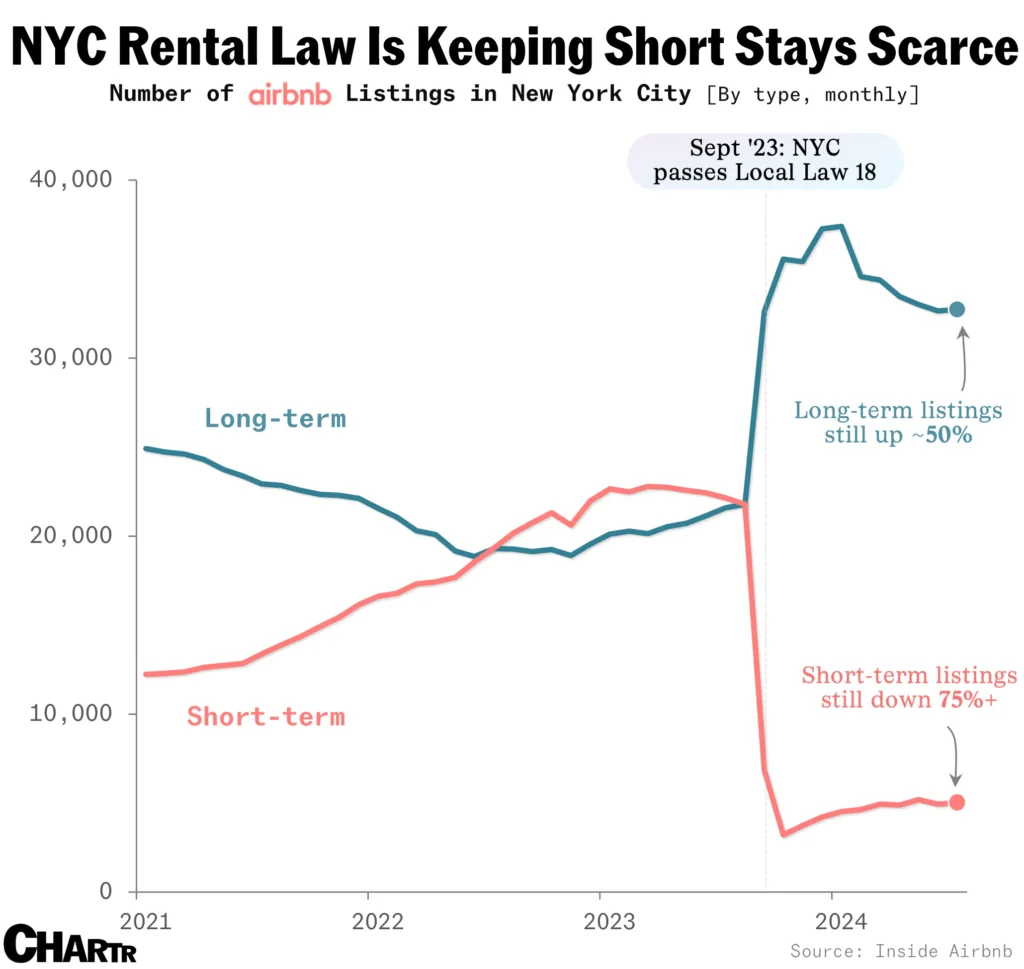
Why Is NYC So Hellbent On Stopping Airbnb Short-Term Rentals?
Local Law 18 immediately changed the short-term rental market. Apartments dominate NYC housing stock (Manhattan sales are 98% co-ops & condos), and Airbnb is more disruptive in multi-family communities than single-family communities due to proximity. If an Airbnb landlord turns over their unit once every 1-3 days, that places pressure on security at the entrance to the building and controlling noise levels. A condo buyer who paid $2.5 million for their unit did so with the expectation that their next-door neighbor wouldn’t turn over every few days (per law).
Airbnb rentals removed a large chunk of traditional long-term rental listings, as evidenced by the return of listings to the market after the implementation of Local Law 18 back in September 2023. Fewer traditional rental listings mean higher rents paid by tenants and hotel guests in a city already adversely impacted by high housing prices.
While Airbnb Is Recording Record Profits, Individual Landlords Are Being Crushed By Falling Rents And Higher Cleaning Fees
It is important to discern between Airbnb, a company that is pulling in a lot of revenue, and the plight of Airbnb landlords. Airbnb is pushing for a lot more hosts, which eventually restrains achievable rents. Over the past five years, the number of hosts has risen by 57%, and occupancy is projected to be flat.
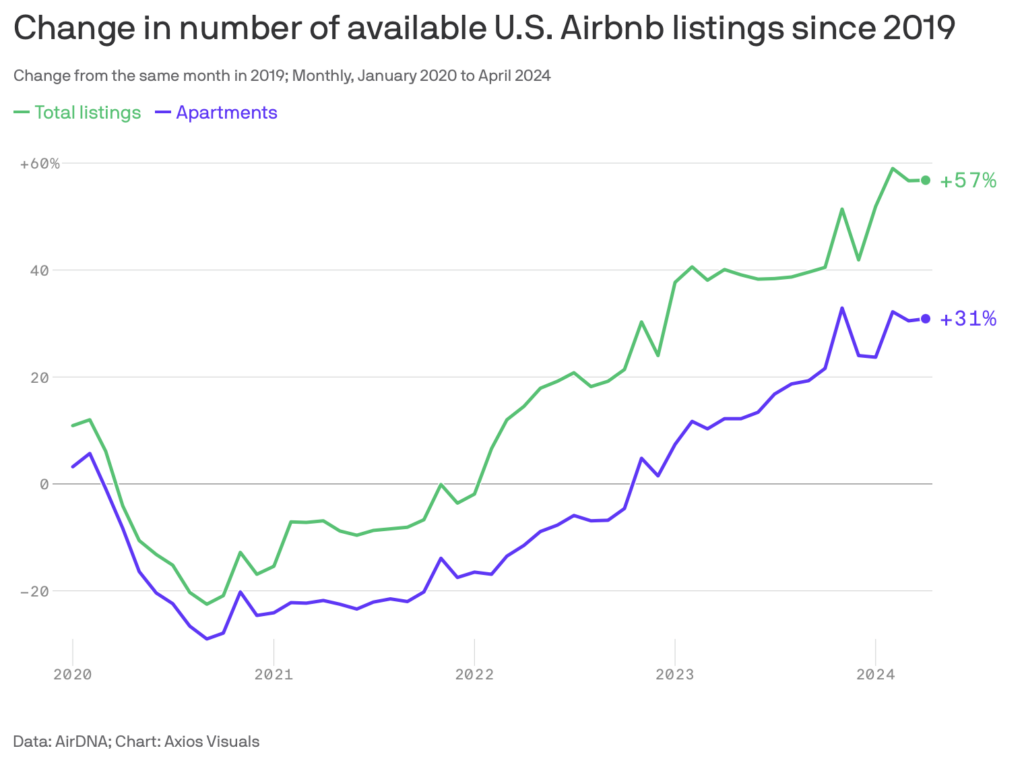
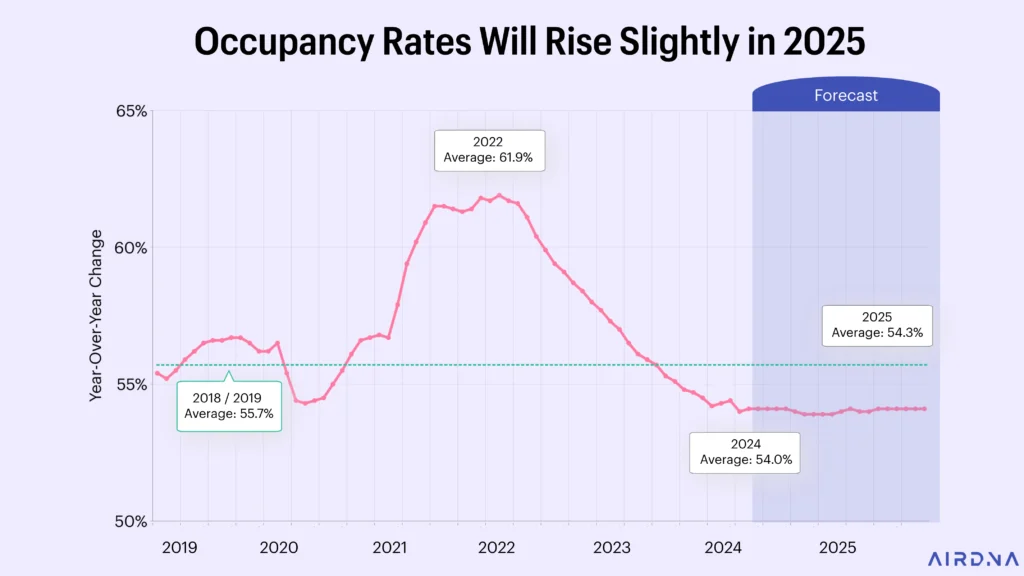
As rents soften and occupancy stagnates, it appears that Airbnb hosts are offsetting the loss of income with higher cleaning costs. It has become a huge part of the cost, yet the renter finds themselves responsible for a lot of the clean-up.
NerdWallet: “A June 2022 NerdWallet analysis of 1,000 U.S. Airbnb reservations with check-in dates in 2022 or 2023 found that the median cleaning fee per listing for a one-night stay was $75 – …only 15% of the available listings in NerdWallet’s analysis didn’t have a cleaning fee.”
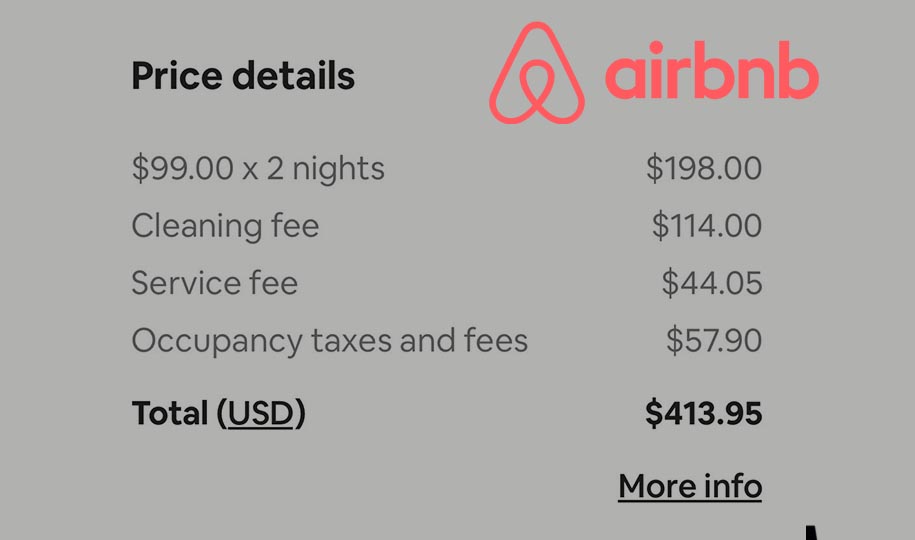
Many of my friends and relatives regularly rent using Airbnb or its competitors. I’ve stayed in a few rented by relatives, and for meeting stayovers with some startups I’m involved in. However, I have never rented one myself because I was concerned about stories of hidden videos. I’ve done enough divorce appraisals to know that hidden video cameras are not uncommon, even more so now as the technology improves. I’m admittedly a little overly paranoid about it.
The explosion of Airbnb hosts reminds me of the early days of Uber and the surge in drivers, causing everyone’s income to plummet – the model always requires corporations to put their revenue needs first.
Did you miss Friday’s Housing Notes?
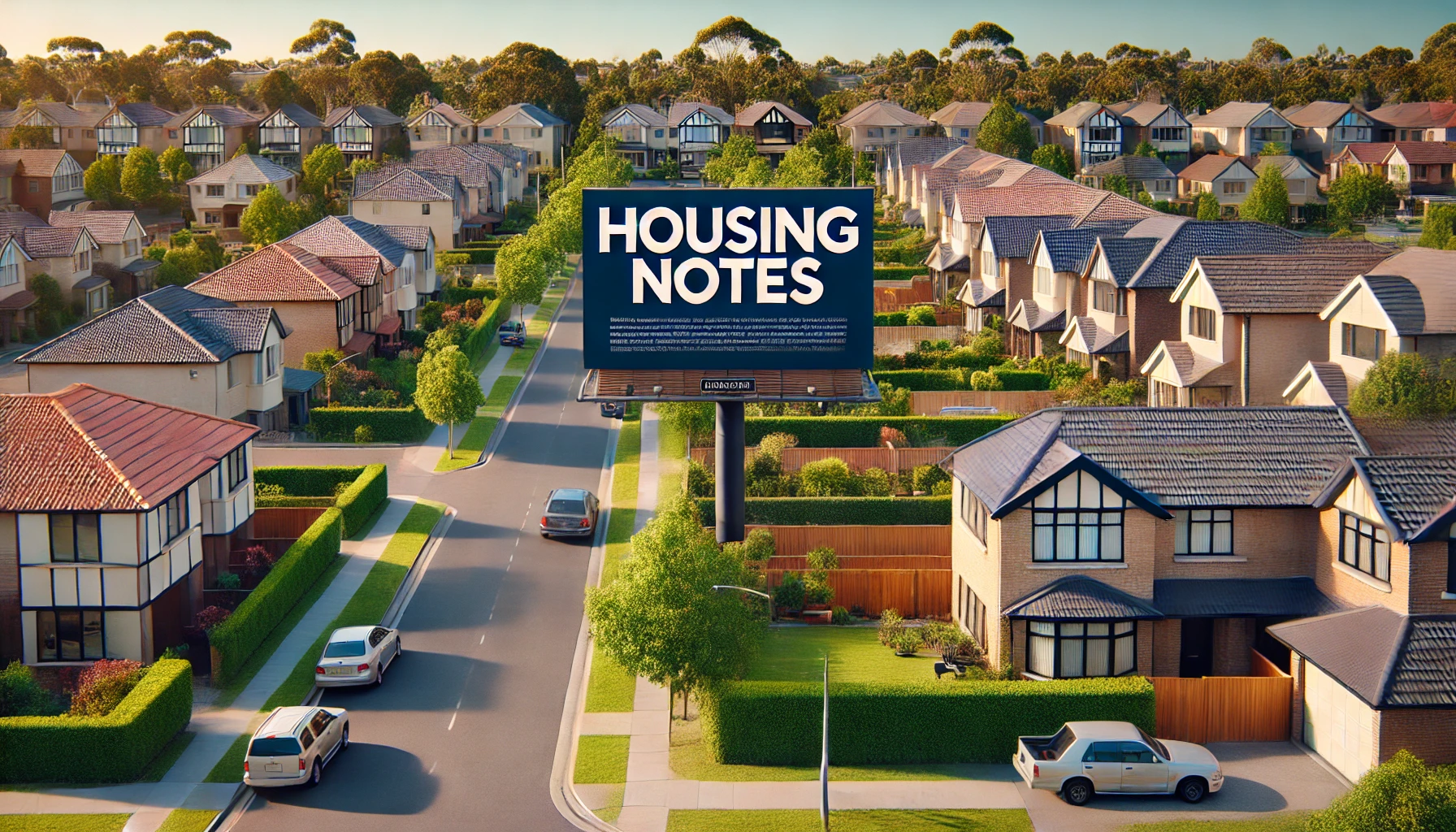
September 6, 2024
More Cash Purchases From Higher Mortgage Rates, Make New Anti-Money Laundering Rules Come In Handy
Image: ChatGPT
Housing Notes Reads
- Local Law 18 made short-term Airbnbs disappear, and they haven’t come back [Sherwood]
- Airbnb Has a Plan to Fix Cleaning Fees [NerdWallet]
- Airbnb wants more renters to get in on hosting [AXIOS]
- Airbnb Q1-2024 financial results [Airbnb]
- What New York City’s new Airbnb rules mean for travelers [Washington Post]
- ‘Must love dogs and rude roommates’: the scramble to get around New York’s Airbnb crackdown [The Guardian]
- NY Court: Short-Term Rental Services Must Register Dwellings to Comply with Local Law [Holland & Knight]
- Why Airbnbs Are Getting Harder to Rent Out [Time]
- U.S. 2024 and 2025 Mid-Year Outlook Report [AirDNA]
- Airbnb Cleaning Fees: What Hosts Need To Know [AirDNA]
- Airbnb Hosting Isn’t What It Used to Be [Bloomberg]
- The Role of Airbnbs in America’s Housing Crisis [Lincoln Memorial University Law Review]
- Unpopular Opinion: Airbnb Has Become Terrible [NerdWallet]


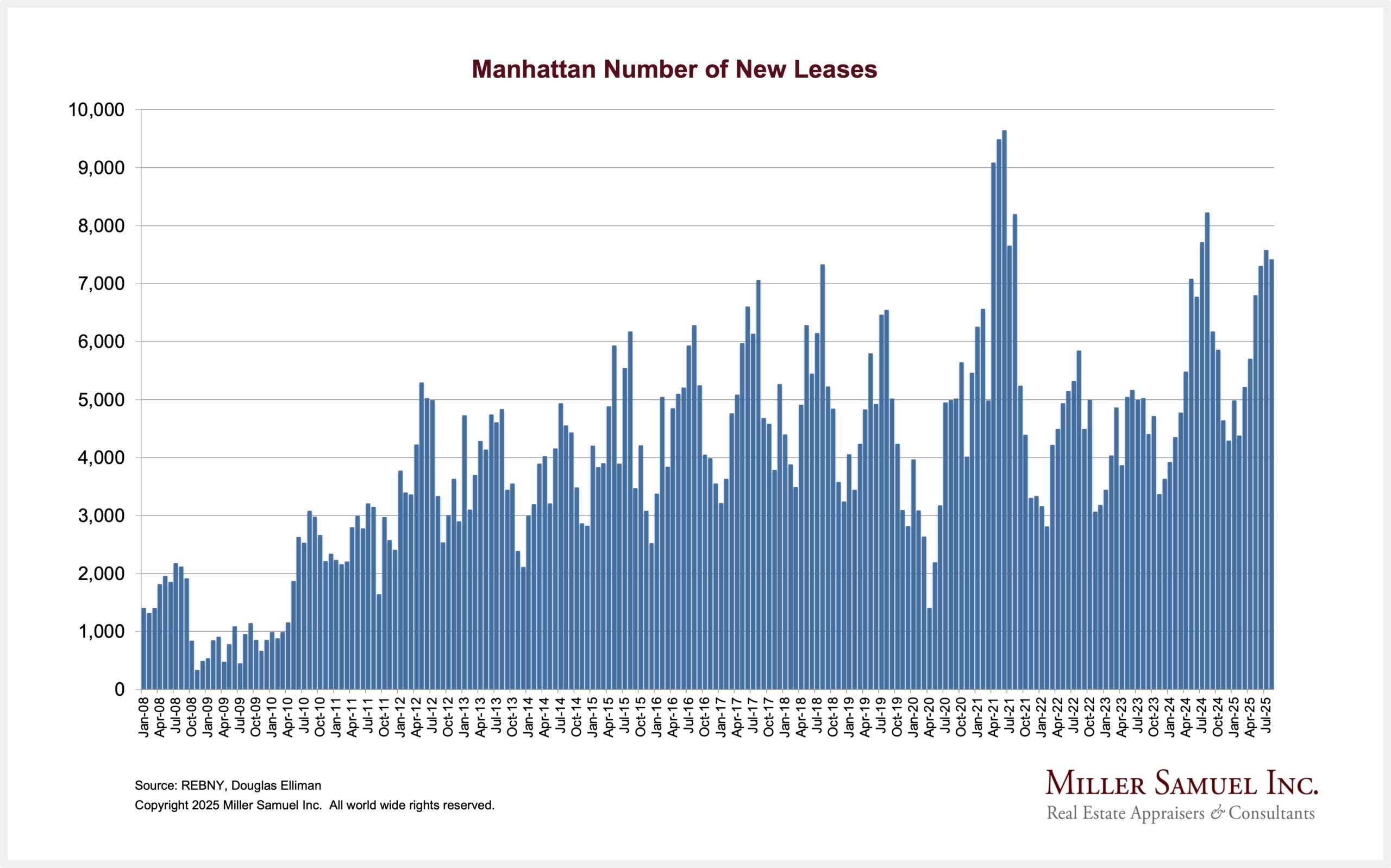
![[Podcast] Episode 4: What It Means With Jonathan Miller](https://millersamuel.com/files/2025/04/WhatItMeans.jpeg)